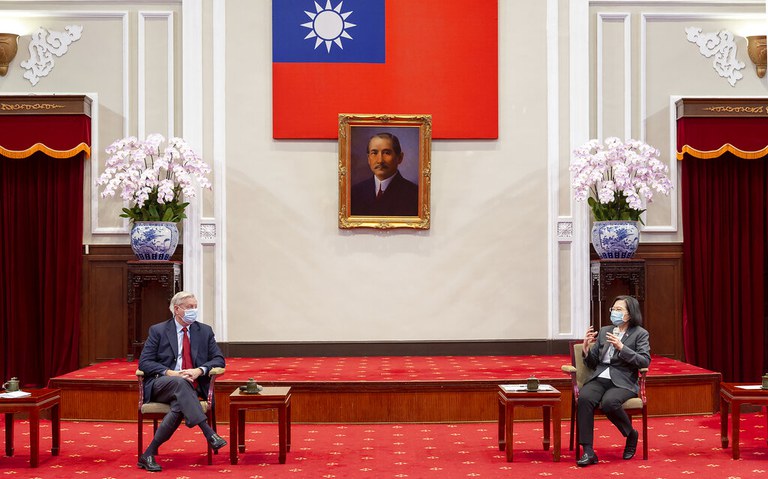Cambodian opposition activists spend New Year’s holiday suffering in prison
Three activists affiliated with Cambodia’s banned opposition party are spending the New Year’s holiday in jail, with the wife of one reporting concern over her husband’s declining health. Eap Suor, the wife of Cambodia National Rescue Party (CNRP) activist Kong Sam An, visited her husband, 70, at the Prey Sar Prison Friday, the second day of the Cambodian New Year holiday. She told RFA’s Khmer Service that he was very ill due to his detention in a crowded prison cell, where he is underfed to the point of malnutrition. He and other prisoners looked pale during the highly restricted visit, which allowed only two family members to see him. “This is the second New Year that I visited my husband in prison. He told me that he was happy to see us and nothing could compare with meeting his children and wife,” she said. “Please release him, he is an innocent person. I was shocked to see my husband. He is a good person, they shouldn’t imprison him,” Eap Suor said, adding that they brought food and money for him during the visit. “There is no clean water or a place to sleep, and he now has skin disease,” she said. The Supreme Court is set to hear her husband’s appeal on April 27, she said. Kong Sam An, a former district councilor for the CNRP, was arrested in September 2020 and sentenced to seven years in jail for “treason” for an alleged plan to bring CNRP’s exiled leader, Sam Rainsy, back to Cambodia. The Supreme Court banned the CNRP in November 2017 for its supposed role in an alleged plot to overthrow the government. Key party figures were arrested as others fled into exile as part of a crackdown by Cambodia Prime Minister Hun Sen on the political opposition, NGOs and independent media outlets Hun Sen’s Cambodian People’s Party went on to win all 125 seats in the country’s July 2018 general election. Since then, the government has continued to target activists associated with the CNRP, arresting them on arbitrary charges and placing them in pretrial detention in overcrowded jails with harsh conditions. The Khmer New Year runs from April 14-16. The family of another CNRP activist, Khan Bunpheng, was unable to visit him over the holiday, because the prison did not inform them that New Year’s visitation was permitted, his wife Men Kuntheary told RFA. Khan Bunpheng had been a commune chief in Battambang province in the country’s northwest. He was arrested in January 2021 on treason charges. Men Kuntheary said she plans to bring her husband food and money after the holiday. Prum Chantha, wife of Kak Komphear, who is also charged with treason, told RFA that she was unable to meet her husband. She instead had a Buddhist ceremony at her home without him. “I am sad that for the past two years, I haven’t had a chance to see him. I wish in the new year that my husband will be in good health and that he will be freed soon,” she said. RFA was unable to reach Prison Department spokesman Nuth Savna for comment on Friday. Am Sam Ath, of the Cambodian League for the Promotion and Defense of Human Rights (Licadho), said political prisoners should not be kept away from their families on the holiday. “We cannot forget that people are meeting happily during the New Year both inside and outside the country, but the families of detained activists can’t meet them. This is sad,” he said. “As an NGO we urge politicians to negotiate to reach a compromise to release the political activists.” About 60 CNRP activists are in custody, some serving sentences as long as five years. Cambodia has no bail, so detained political activists can remain in pretrial detention for years before their case is heard in court. Licadho has said that the lack of a bail system has unnecessarily kept the prison population larger than it needs to be. Translated by Samean Yun. Written in English by Eugene Whong.


